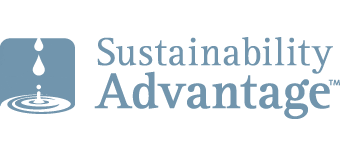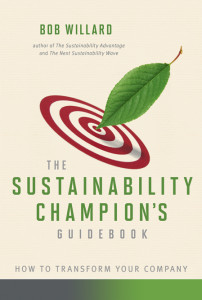7 Ways to Get Credible and Stay Credible

In The Sustainability Champion’s Guidebook, I explain seven leadership practices used by successful change agents. They are all important, but the one that tops them all is “Get Credible; Stay Credible.” Leadership gurus Jim Kouzes and Barry Posner agree. After writing their landmark book, The Leadership Challenge, they wrote Credibility: How Leaders Gain and Lose It, and Why People Demand It.
Without credibility, leaders are not trustworthy. Based on my years of leadership experience and hundreds of books and articles by sustainability leaders, here are 7 ways to become, and stay, a credible sustainable champion.
1. Get credible on sustainability principles
At a recent conference, David Miller, former mayor of Toronto, was asked what he thought was the #1 attribute of an effective leader. Without hesitation, he answered, “Competence.” If you do not know what you are talking about, people will distrust your judgment and your suggested sustainability strategies.Understand the science-based pre-conditions for a flourishing, resilient, and sustainable human society on this finite planet, and how our business models have ignored them for the last 250 years. Develop a portfolio of frameworks and terminology by which to explain sustainability to skeptics in various sectors.
2. Get credible on one or two aspects of sustainability
The good news is that sustainability is wonderfully inclusive framework for everything that matters in the world. The bad news is that you can’t be good at everything. Specialize in a few things, such as life cycle analysis, sustainability reporting, employee engagement, carbon footprint assessment, or stakeholder engagement. Or get good at an urgent issue within the water-energy-food-climate nexus. My claim to fame is quantifying the business case for sustainability, and I build on that foundation in my talks. Find a niche and use it as a platform for engagement.
3. Get credible on your sector’s business
Decide in which sector you want to devote your energy. If it is the public sector, specialize in sustainability approaches at the municipal, provincial / state, or federal level. If it is academic sector, choose the K-12 arena or post-secondary colleges and universities. If it is the private sector, decide which of the numerous sub-sectors you have a passion to change, such as the financial, manufacturing, retail, services, healthcare, food, mining, or chemical sub-sectors. Once you have selected your target sector, learn its business model.
Why? The second most important leadership practice is “Meet them where they are.” Sustainability champions need to translate sustainability-speak into sector-specific context and terminology, so that their transformational strategies are relevant to their clients’ or colleagues’ current priorities. Honor the organization’s current business model and tailor your compelling business case to their internal and external realities. Once you have earned their trust, you can explore more strongly sustainable business models with them.
4. Get credible as a leader of change
It is fine to be passionate about sustainability, and to understand sustainability principles, a specific niche, and the business of your sector. Followers need to trust that their leaders know how what they are doing. Leaders need to understand the generic steps for any change, the leadership practices and paradoxes that ensure they execute the steps effectively, and the derailers to avoid during the change process. Fortunately, the literature on leadership and change is packed with guidance on how to successfully lead a culture change. My summarization of that guidance is in The Sustainability Champion’s Guidebook.
5. Walk the talk
Most sustainability champions don’t drive Hummers. People assess the credibility of a leaders’ advice by whether the leaders are following their own recommendations. Whether it is fair or not, people judge the message by how it aligns with the messenger’s own behavior. If an NGO encourages a business to reduce its carbon footprint, how is it doing on its own? How we dress, where we live, how we travel, or what we do in our spare time may scream messages that we never intended and drown out our credibility. Leaders lead by example.
6. Stay credible
Credibility is a perishable resource; it is also renewable. Sustainability champions like you and me need to stay on top of the news about the sustainability world. We can do that by being active participants in social media forums, reading the latest books and reports about sustainability issues of interest, and subscribing to news services that focus on our area of expertise. I subscribe to about a dozen news-clip services like CSRwire, GreenBuzz, SB News & Views, Environmental Leader, Corporate Knights Messenger, and 2degrees. I sift out the best stuff and summarize it in slides that I add to my master Sustainability Advantage Slide Set, which I share with subscribers.
I humbly think that slide deck is my most valuable resource because: it includes two typical presentations to help sustainability advocates get started, with hundreds of backup slides to protect their credibility; it contains summaries of current sustainability surveys, articles, books, reports, and other research; it summarizes my four books; and it is intended to be shared and plagiarized. The master deck is used by some subscribers as a CliffsNotes-like dynamic crash course on the sustainability imperative for business.
Subscribers to the deck receive updated versions every three months. Although I add 20-40 new slides to each “Quarterly Credibility Boost,” I prune redundant or outdated slides so that the number of slides stays within the 500-600 range. You might want to try it for a year to see if it provides a helpful support for your credibility.
7. Have fun
Staying current shouldn’t feel like drudgery. Life’s too short and you want to be an upbeat champion of sustainability, not a stressed out exhausted deterrent. Experts understand that the more you know, the more you know that you don’t know. News-clip services, blogs, and social media are resources that should be scanned for items of interest, not treated like mandatory homework. Do your best, and cut yourself some slack.
So, bone up on your area of expertise, stay reasonably current on the goings on in your area, and enjoy the lifelong learning journey. Most of us quickly find out that “expert” is a relative term; that you may already know more than most people in this area; and that staying credible soon becomes an enjoyable and intrinsically motivating part of your daily routine.
As usual, the above slides are from my Master Slide Set.
Please feel free to add your comments and questions using the Comment link below. For email subscribers, please click here to visit my site and provide feedback.
Bob




